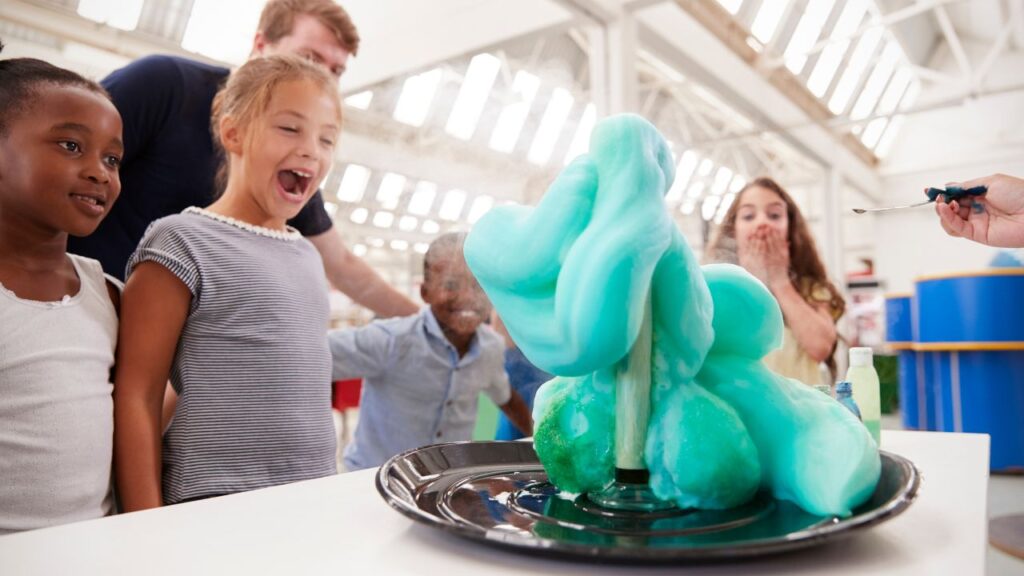25 Fascinating Psychological Facts About Love
Love, a complex and multifaceted emotion, has long captivated the human imagination, inspiring poets, artists, and philosophers alike. While love is often portrayed as an ethereal and mystical force, it is also deeply rooted in the workings of the human mind.
Psychology, the scientific study of human behavior and mental processes, offers fascinating insights into the psychological underpinnings of love, revealing the intricate mechanisms that drive our feelings of affection, attachment, and passion. Embark on a journey into the realm of love psychology as we uncover the 25 amazing psychological facts about love, shedding light on the inner workings of this enigmatic emotion.
Chemical Romance: The Science of Love

Love isn’t just a feeling; it’s a biochemical process. When we fall in love, our brains release a surge of chemicals, including dopamine, oxytocin, and serotonin. These chemicals create feelings of pleasure, happiness, and attachment, forming the foundation of the emotional rollercoaster we experience when in love.
- Related To: How to Sleep 8 Hours in 4 Hours: Is It Even Possible?
- Related To: What Does it Mean if You Dream About Someone Repeatedly?
- Related To: A Journey to Personal Sustainability Through Simplifying Life
- Related To: Art of Beer Bath for Ultimate Relaxation
- Related To: Exploring the Richness of Oman Wedding Ceremonies
Love at First Sight: The Power of Impressions
The concept of love at first sight isn’t just romantic fiction. Studies suggest that we form impressions of others within the first few seconds of meeting them. Factors like body language, facial expressions, and even scent play a significant role in sparking the initial flames of attraction.
The Three Stages of Love: Lust, Attraction, and Attachment
Psychologist Robert Sternberg proposed the Triangular Theory of Love, breaking down love into three stages: lust, attraction, and attachment. Lust is the physical desire for intimacy, attraction involves the romantic feelings and passion, while attachment is the deep, long-term connection that develops over time.
Opposites Attract? Not Always
While the idea that opposites attract is a common belief, research suggests that we are more likely to be attracted to those who share similar values, attitudes, and backgrounds. Shared interests and commonalities create a stronger foundation for a lasting relationship.
The Power of Touch: Physical Affection Matters
Physical touch is a powerful communicator of love. Hugging, kissing, and other forms of physical affection release oxytocin, known as the “love hormone,” promoting bonding and reducing stress. Couples who regularly engage in physical touch often report higher levels of relationship satisfaction.
Love is Blind: The Halo Effect
Psychologists describe the “halo effect” as our tendency to perceive someone as more attractive if we believe they possess positive qualities. When we are in love, this effect is amplified, causing us to overlook flaws and see our partners through a rose-colored lens.

The Role of Attachment Styles
Our early experiences with caregivers influence our attachment styles in adult relationships. Psychologist John Bowlby identified three main attachment styles: secure, anxious, and avoidant. Understanding these styles can provide insight into how individuals connect and relate to their partners.
The 7-Year Itch: Reality or Myth?
The notion of the “7-year itch” suggests that relationships tend to face challenges around the seven-year mark. While not a universal truth, research indicates that couples may experience a decline in marital satisfaction around this time. Understanding this phenomenon can prompt couples to proactively address issues and strengthen their bond.
Love and the Brain: A Long-Term Connection
Long-term relationships have a profound impact on the brain. Studies using neuroimaging have shown that the brains of individuals in committed relationships exhibit similarities, particularly in areas associated with empathy and emotional regulation. Love, it seems, has the power to synchronize our brains with our partners.
Love is a Lifelong Journey: The Evolution of Love
As we age, so does our experience of love. Psychologist Erik Erikson proposed the stages of psychosocial development, suggesting that intimacy versus isolation is a crucial challenge in early adulthood. Love continues to evolve throughout our lives, presenting new opportunities for growth, connection, and fulfillment.
Love Hormones and Conflict Resolution: The Oxytocin Effect
Beyond its role in bonding, oxytocin also plays a crucial role in conflict resolution. Studies suggest that increased levels of oxytocin can enhance communication and empathy, making it easier for couples to navigate disagreements and find mutually satisfying resolutions.
Virtual Love: The Impact of Technology on Relationships
In the digital age, technology has reshaped the landscape of love. Online dating, social media, and virtual communication platforms have altered how we initiate and maintain romantic connections. Understanding the psychological dynamics of virtual love is essential for navigating the challenges and opportunities presented by modern technology.
Cultural Influences on Love: Collectivism vs. Individualism
Cultural factors significantly influence our perceptions and experiences of love. Cultures that emphasize collectivism often prioritize familial and societal expectations, while individualistic cultures may prioritize personal fulfillment. Recognizing these cultural nuances is crucial for cross-cultural relationships and understanding diverse expressions of love.
The Power of Surprise: Dopamine and Novelty in Relationships
Dopamine, a neurotransmitter associated with pleasure and reward, plays a role not only in the initial stages of love but also in maintaining long-term relationships. Surprises and novel experiences with a partner can trigger dopamine release, injecting excitement and freshness into a relationship.
Love and Laughter: The Humor Connection
Laughter is a potent tool in the arsenal of love. Shared laughter releases endorphins, creating a positive association with the partner. Couples who engage in playful banter and humor report higher relationship satisfaction, emphasizing the importance of laughter as a bonding mechanism.
Attachment Styles in Friendships: The Friend Zone Phenomenon
Attachment styles, typically associated with romantic relationships, also influence platonic connections. Understanding how different attachment styles manifest in friendships can provide insights into the dynamics of the “friend zone” and help individuals navigate these relationships with emotional intelligence.
The Impact of Childhood Experiences on Adult Love

Our childhood experiences, especially those related to attachment with primary caregivers, shape our ability to form and maintain romantic relationships later in life. Childhood traumas or secure attachments can significantly impact our relationship patterns, highlighting the importance of addressing past wounds for a healthier love life.
Love Languages: Expressing and Receiving Love
Psychologist Gary Chapman introduced the concept of love languages, suggesting that individuals have preferred ways of expressing and receiving love: words of affirmation, acts of service, receiving gifts, quality time, and physical touch. Understanding each other’s love languages can enhance communication and strengthen emotional bonds.
The Science of Heartbreak: Neurological Responses to Breakups
Heartbreak is not just a metaphorical expression; it has real physiological effects. Neuroimaging studies have shown that the brain processes the emotional pain of a breakup similarly to physical pain. Recognizing the neurological aspects of heartbreak can contribute to a more compassionate approach to both self-healing and supporting others through challenging times.
The Evolutionary Puzzle of Monogamy and Polyamory
The debate between monogamy and polyamory has both biological and psychological dimensions. Evolutionary psychology suggests that monogamous relationships may have evolved for the benefit of offspring, while cultural and individual factors contribute to the diverse relationship structures seen today. Exploring these dynamics can deepen our understanding of the varied ways humans experience and express love.
Phantom Ex-Lover Phenomenon: The Brain’s Continued Attachment
Even after a breakup, the brain can maintain a sense of attachment to an ex-partner, leading to what some psychologists call the “phantom ex-lover” phenomenon. Neurological pathways associated with love and attachment may persist, causing individuals to experience lingering feelings for someone they consciously want to forget.
Love and Gut Feeling: The Role of the Enteric Nervous System
Often referred to as the “second brain,” the enteric nervous system in our gut plays a role in our emotional experiences, including love. Recent research suggests a bidirectional relationship between the brain and the gut, indicating that gut feelings may have a more profound impact on our romantic choices and feelings than previously thought.
Digital Pheromones: The Influence of Scent in Online Dating
While physical scent has long been associated with attraction, online dating platforms are now incorporating a digital version of this concept. Some dating apps use scent-based algorithms to match users based on their preferences for certain fragrances, adding a unique olfactory dimension to the digital pursuit of love.
The Post-Sex Sleep Dilemma: Gender Differences in Afterglow

Research indicates that men and women may experience the post-coital “afterglow” differently. While men often report better sleep quality after sex, women may experience enhanced cognitive function. Understanding these gender-specific responses can lead to more nuanced discussions about the physiological effects of intimacy.
Love’s Influence on Pain Perception: Analgesic Effects of Romantic Love
Romantic love has been found to have analgesic effects, meaning it can reduce the perception of physical pain. Studies suggest that simply looking at a picture of a romantic partner can activate brain regions associated with pain relief. This unique aspect of love’s impact on our well-being adds another layer to the intricate interplay between emotions and physical sensations.
What Does Psychology Say About True Love?
True love is a complex concept that has been debated for centuries. According to Yana Dubinsky, a clinical psychologist, true love goes beyond feelings and is “an act of will and judgment, intention and promise”. Psychologist Erich Fromm inspired Dubinsky’s definition of true love. Mark E. Sharp, a psychologist in private practice, also believes that true love involves commitment and choices shared by partners.
There are some indicators of true love, according to a psychologist named Dr. Seth Meyers. These include feeling secure and comfortable with your partner, being able to be yourself around them, and feeling a deep sense of trust and respect for them.
Chemical substances such as oxytocin, phenethylamine, and dopamine have been found to play a role in human experiences and behaviors associated with love. Falling in love is a physiological response that involves the brain’s reward system.
Conclusion
Love is a multifaceted and dynamic force that influences our thoughts, emotions, and behaviors. Understanding the psychological intricacies of love can deepen our appreciation for this profound human experience. From the chemical reactions that ignite passion to the lifelong journey of evolving love, the psychological facts about love paint a rich tapestry of human connection.
As we navigate the complexities of relationships, armed with knowledge about the psychological foundations of love, we can forge stronger, more fulfilling connections with those who hold a special place in our hearts.







